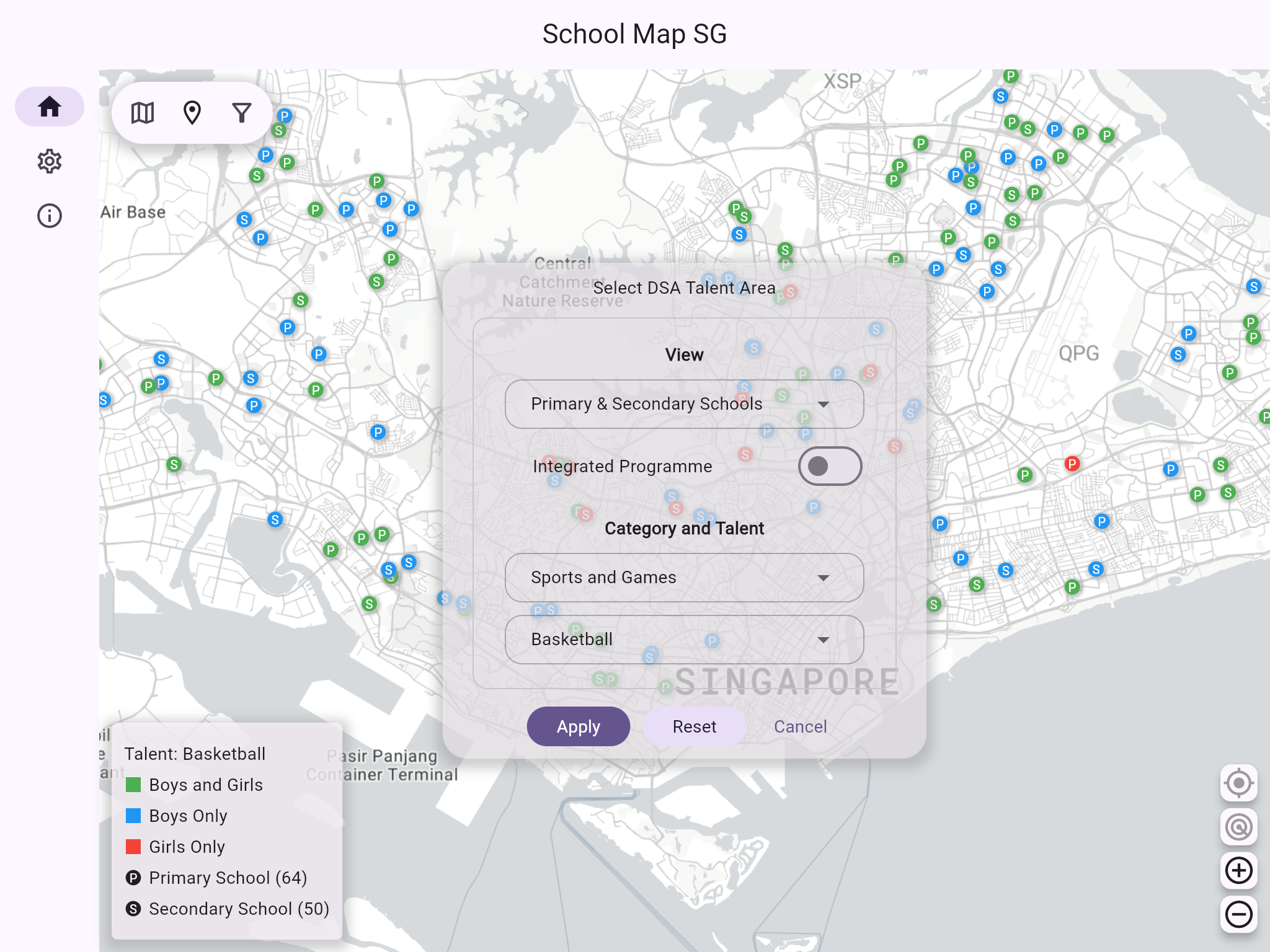
DSA and CCA Map is Available
After weeks of effort, the DSA and CCA Map is finally online. In my opinion, this is the most important map for the primary school stage. You can search for secondary schools that offer DSA for a specific talent area and find the corresponding primary schools that provide related CCAs. Plan your child’s future pathway in advance based on their strengths.

In Singapore, Co-Curricular Activities (CCA) in primary school are closely linked to the Direct School Admission (DSA) process for secondary school entry. CCA is not only an essential part of a student’s holistic development but can also significantly impact their chances of securing a spot in their desired secondary school, especially through the DSA pathway. Here’s an analysis of their relationship:
1. What is CCA?
CCA is an integral part of Singapore’s primary and secondary education system, covering various categories such as sports, arts, performing arts, technology, and uniformed groups. Students in primary school (from Primary 3 to Primary 6) are encouraged to participate in at least one CCA to develop interests, skills, and leadership qualities.
2. What is DSA?
DSA is a special admission pathway that allows Primary 6 students to apply for certain secondary schools based on their talents in specific fields, rather than relying solely on their PSLE (Primary School Leaving Examination) results. Students can apply for DSA based on their strengths in areas such as academics, sports, arts, leadership, or specific subjects.
3. How Does CCA Influence DSA?
CCA participation and achievements play a significant role in the DSA application process in several ways:
(1) Meeting DSA Eligibility Criteria
Many top secondary schools (such as Raffles Institution, Hwa Chong Institution, Nanyang Girls’ High School, etc.) prioritize students who demonstrate excellence in a particular field. For example:
- Sports DSA: Students who excel in CCA sports such as football, badminton, swimming, or athletics and achieve notable results in school or national competitions may qualify for DSA under the sports category.
- Arts DSA: Students with exceptional talent in music, dance, drama, or visual arts—often developed through CCAs like choir, Chinese orchestra, symphony band, or drama club—can apply for DSA in the arts category.
- Academic & Technology DSA: Students who excel in subjects such as robotics, Mathematics Olympiad, or scientific research—often nurtured through CCAs like coding clubs or science clubs—can apply for DSA under academic or technology-related programs.
(2) Competitive Edge & Achievements
- Participation in National or Inter-School Competitions: Outstanding results in competitions (such as National School Games or the Singapore Youth Festival) greatly enhance a student’s DSA application.
- Leadership Roles: Holding leadership positions in CCA (e.g., team captain, vice-captain, or committee leader) adds value to a DSA application by demonstrating responsibility, leadership, and teamwork skills.
(3) Showcasing Unique Talents and Strengths
DSA interviews and auditions often require students to present their skills and achievements. A strong CCA background provides concrete evidence of their abilities, with records of training experiences, competition results, and personal growth stories helping students stand out in the selection process.
4. How to Use CCA to Prepare for DSA?
If parents want their children to use DSA to enter their preferred secondary school, they can take the following steps:
- Choose a Suitable CCA Early: Encourage children to commit to a CCA from Primary 3 or 4 and avoid switching frequently to build expertise and experience.
- Participate in Competitions: Gaining exposure through both school and national-level competitions strengthens a student’s DSA application.
- Develop Leadership Skills: Encouraging children to take on leadership roles in their CCA can showcase their responsibility and teamwork abilities.
- Keep Track of Achievements: Documenting awards, training experiences, and competition results will be useful for the DSA application.
- Research Target Schools’ DSA Requirements: Since different schools have different DSA selection criteria, it is essential to understand their requirements and develop the necessary skills accordingly.
CCA is not only a crucial part of primary school education in Singapore but also plays a vital role in the DSA admission process. By strategically selecting and developing a CCA, students can gain a significant advantage in their DSA applications, increasing their chances of securing a place in their desired secondary school. Therefore, both parents and students should plan ahead and leverage CCA as a stepping stone for future academic success.


